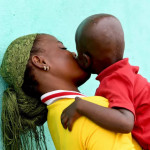Young people living with HIV are at risk of failing treatment when transitioning from pediatric to adult care for the virus, aidsmap reports. Publishing their findings in Clinical Infectious Diseases, researchers studied 59 adolescents and young adults with HIV in the Netherlands.
Eight members (14 percent) of the group studied were lost to follow-up an average of 1.5 years after transitioning to adult HIV care.
Members of the group were most likely to fail their HIV regimen at 18 to 19 years old, around the time they transitioned to adult care. During this time, they had a 4.26-fold increased risk of failing their regimen compared with a reference group of HIV-positive children 12 to 13 years old.
Those young people in the study who were not able to adhere to their HIV regimens without outside assistance were 6.89 times more likely to fail their regimen. Those who had a poor knowledge of HIV were 5.15 times more likely to fail (although this calculation was based on only two people failing their regimens). Additionally, having a low level of education was associated with failing an HIV regimen.
To read the aidsmap article, click here.
To read the study abstract, click here.







Comments
Comments